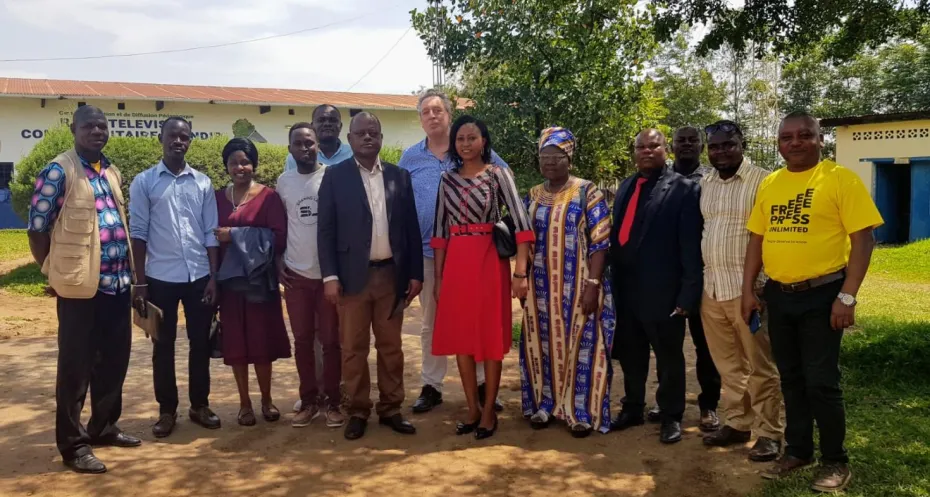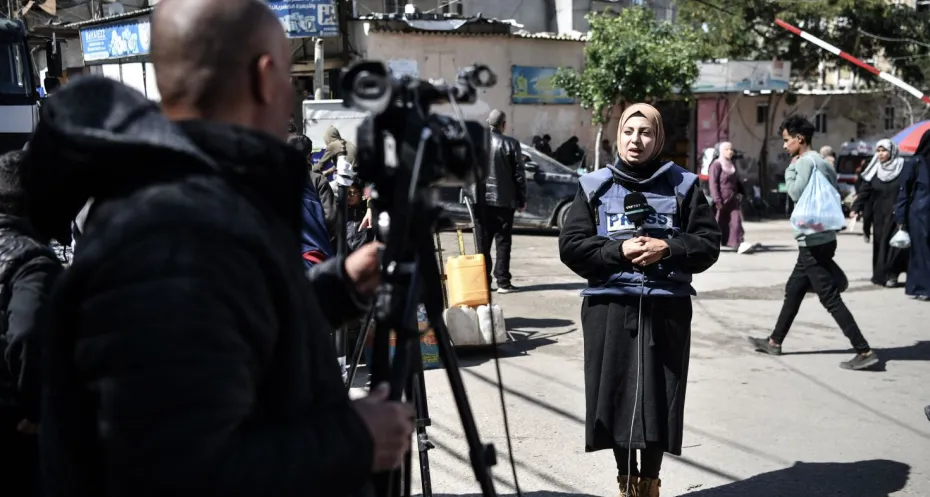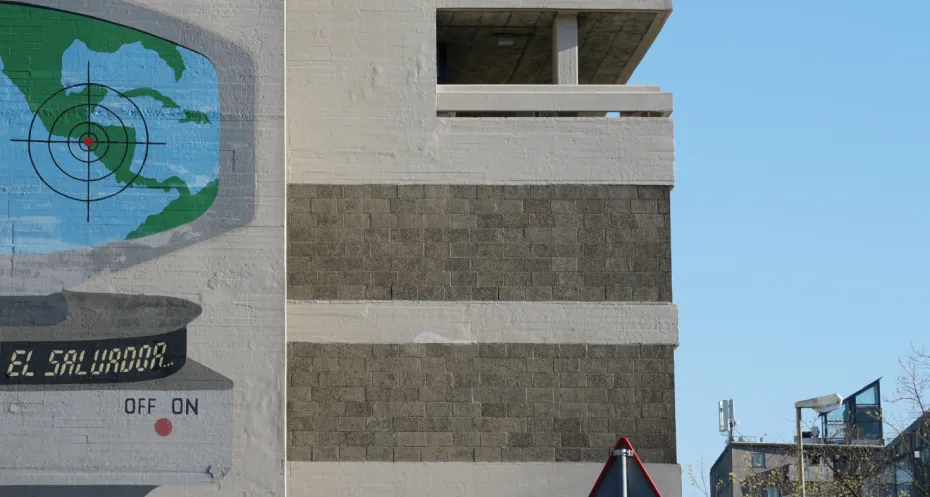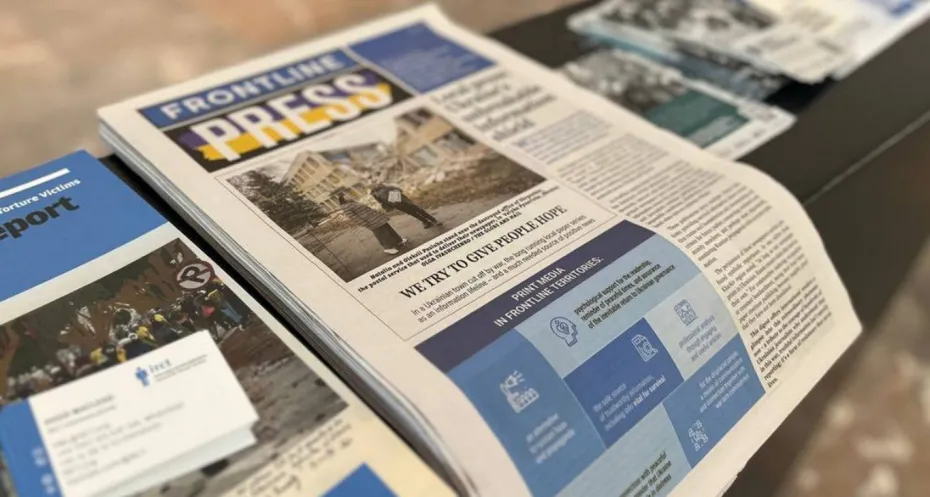Ensuring the security of journalists in key conflict areas in the DRC

The continent of Africa is home to the 10 most neglected conflicts by mass media. The conflicts remain underreported because they are internal and many of them don’t affect the west. An inescapable example is the Democratic Republic of Congo (DRC), which is highlighted as one of the countries with the most neglected displacement and humanitarian crises.
These conflicts also impact press freedom as journalists cannot freely and securely cover key events such as protests, incidents with militia, and affairs with the armed forces. The humanitarian crises and violence between the groups, lead to journalists suffering from threats, injuries when covering protests, and even deaths.
Free Press Unlimited, together with local partners in the DRC, has explored ways to respond to these crises and the impact it has on journalists, and from those reflections started a project called the Security of Journalists. The project started in 2020, and has now concluded after two years.
With the financial support of the Dutch embassy in the DRC, Free Press Unlimited, together with local organisations CORACON and AFEM, started the project, with the aim of improving the physical security of journalists in the main areas of conflict in the country: Nord Kivu and Sud Kivu. The project was designed on three axes: enabling the work of journalists, monitoring press freedom attacks, and training journalists to do their work securely and truthfully.
A long lasting conflict
The political and humanitarian turmoil in the DRC dates back to past wars, such as the Second and First Congo wars, involving Rwanda, and DRC’s problematic past with democracy.
The current situation is still affected by political instability, human rights violations and continuous armed conflict. The perpetrators of attacks range from militia men, and the Congolese army (FARDC). The FARDC now focuses on the numerous armed rebel forces in the region. A state of siege has been declared in North Kivu and Ituri, replacing leadership in the regions with military authorities. The Journalists in Danger (JED) report has indicated that this new status quo in the eastern regions has led many journalists to be persecuted when covering news on the militias, and the FARDC. This was also something we observed throughout the Security of Journalists project years.
Training, monitoring, and advocating
During the project, the local partners worked on capacity building for journalists’ security, monitoring of attacks on journalists, and advocating by planning meetings with security authorities and provincial authorities.
Trainings were given in digital security and physical safety, and a special training was set up that catered to women journalists. Women journalists already greatly suffer from human rights violations such as mass rape, fires in villages due to sorcery accusations, and domestic violence.
Overall, up to 500 journalists were trained, who now have a greater awareness to risks and security, according to feedback and interviews. The training also brought awareness to journalists on their rights and their work ethics. The knowledge gained from the training was consolidated through the signing of an ethical charter by journalists in multiple districts of the South and North Kivu regions. Ultimately 595 charters were distributed. Not only journalists were trained, but also a total of 449 technicians, to enable the work of community radio stations and outlets. There was also a focus on safety of women journalists, training up to 369 women, that for example resulted in many of them having a better knowledge on how to maintain security when performing coverage in more isolated areas.
Tackling crimes against journalists
The project has also focused on advocacy and civil society activities to tackle crimes against journalists. A total of 24 meetings were set with relevant figures for press freedom and safety of journalists, such as ministries of communication, and security authorities. For instance, our partner CORACON has established a good relationship with the minister of communication, who showed goodwill to guarantee the security of journalists. Conversely, AFEM successfully set up an audience hearing on a murder of a journalist by her husband (where the cause of the killing was connected to her work), and the advocacy efforts led to the direct conviction of the aggressor, together with many indemnity payment demands.
The project has also set up monitoring units for journalists of many districts of the provinces, enabling fast action in case of persecution, threats or imminent danger. This proved to be successful as the project partners have referred cases of journalists in imminent danger to the Reporters Respond team of Free Press Unlimited, after which they were quickly relocated to safer places. The partners also provided journalists in imminent danger with judicial assistance, to help with appeals to court for crimes against freedom of expression.
Despite these project developments, there are remaining challenges lying ahead, as the state of siege has, according to partners, made news dissemination, especially covering security issues, increasingly difficult. Journalists are afraid to disseminate news fearing retaliation from militiamen or the authorities. Now, a follow up project is set up to focus on promoting the security of journalists along the lines of the now closed Security of Journalists project, but this time focusing on freedom of speech, fact checking and the provision of information during a state of siege in the provinces of North Kivu and Ituri. The project is again funded by the Dutch Embassy in the DRC.



